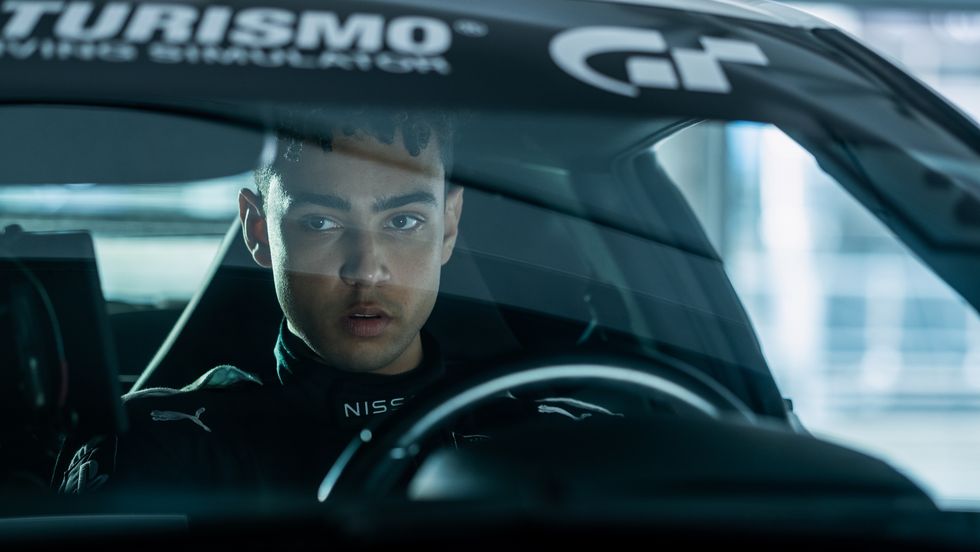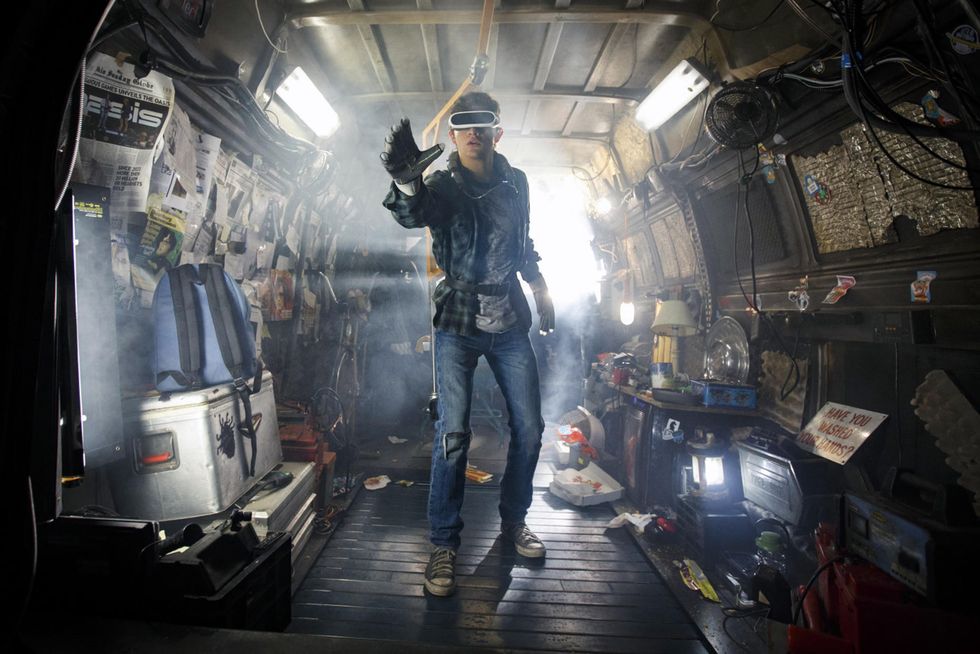The new trailer for Neill Blomkamp’s Gran Turismo looks, at first glance, like a fairly workaday coming-of-age tale. A kid who nobody thinks can drive a race car manages to drive a race car. He comes from nowhere to become somebody. There are ups, there are downs. There are clunky expository chats around the kitchen table.
It may not be a great film. It may not even be a passably good film. Certainly, some have taken the poster, in which a PS5 controller appears to have been clumsily Photoshopped into the main character’s hands, as a sign that it’s going to be a bit of a struggle. The snippets of script are fairly honking. We will find out in August when it is released.
But there is something intriguing about Gran Turismo. For decades now, we’ve seen adaptations of video games which transplant stories and characters into more cinematic, grounded worlds. In the last few years, though, movies have started to respect gamers. As one YouTube commenter wrote under the trailer: “Thanks for believing in gamers!”
The thrust of Gran Turismo is, somehow, based on a true story: Jann Mardenborough (played by Archie Madekwe) won the GT Academy competition against 90,000 other Gran Turismo players back in 2011, and consequently won the chance to race real cars for Nissan at the age of 19. From the trailer, it’s pretty clear how the movie going to go about things:
“You really think you’re going to take a kid who plays video games in their bedroom, you’re going to strap them to a 200mph rocket? It’ll tear him to pieces,” David Harbour’s Jack Salter tells Orlando Bloom’s (Orlando Bloom!) marketing exec and gaming optimist Danny Moore. Salter is your curmudgeonly, sage figure who’s been round the track too many times to entertain the idea of gamers getting on the grid. He got where he got to with grease on his hands and Castrol GTX in his veins. “It’s not gonna work,” he says. “Your kids are scrawny little gamer kids.”
Salter really lays it on thick. “This must be a new experience for you, moving your legs,” he barks at gamers going for a jog. He calls his charges “couch-surfing nerds,” and mocks one who spins out off the track: “Hey, you get extra points for that in the game?”
Now, as I say, you can probably tell what’s going to happen. Jann and Jack start off at loggerheads, then Jack grows to respect Jann’s skills while Jann accepts that Jack has a lot to teach him. Maybe Jack will soften to the point of telling Jann the real reason he’s training these young grunts rather than racing himself. Maybe it’s tragic. Maybe he just preferred Ridge Racer.
But still, it feels important. Once, movies thought gamers were something to be feared. At the turn of the Eighties, gaming was shifting from a ten-pence-piece-eating novelty cabinet in a bar to the kind of thing your silent, shark-eyed son got into one summer. All of a sudden, he’s now always in his room and not accompanying his old man to the driving range.
Gamers came in a few flavours, none of them particularly flattering. In 1983’s WarGames, Matthew Broderick’s brattish teen hacker-slash-gamer David is a conceited tit, and that conceited tittishness ultimately leads him to offhandedly hacking into the Pentagon and nearly starting World War Three.
Then there’s the strain of gamer which became more prevalent in the Nineties, when most twenty-somethings had access to a console. In both Spaced and Shaun of the Dead, Edgar Wright’s millennium-straddling masterpieces, his heroes blast zombies absent-mindedly while they should really be doing something a bit more constructive. The message? They’re a bit uselss. Quite a few episodes of Friends see Joey and Chandler pratting about on a PlayStation, too. These gamers are jaded, slack-jawed Gen Xers disappointed by reality.
So they’re either sadsacks or they’re deviants bent on destroying things, or as in the case of 2009 action flick Gamer, they’re utter sadists. In that one, a scientist has found a way of allowing gamers to take over the bodies of real people and fight to the death. It is a film which wags its finger at you very, very sternly.
Even the Bond films weren’t immune. GoldenEye makes clear that Boris is a cackling smartarse hacker when he builds his own animated mini puzzles into his creepy little passwords. “They're right in front of you and can open very large doors,” he tells Bond girl Natalya, smirking. “You’re such a creep,” Natalya replies while typing the answer: KNOCKERS. Bad riddle, bad guy.
But all that’s changed a lot over the last few years. With Gran Turismo, it feels very much like this young upstart kid is going to show up the old guard who think gaming.
Being a gamer isn’t a byword for being a massive saddo anymore. Indeed, in the last couple of years, both Tetris and Pinball had the ultimate acknowledgment of cultural significance: a period movie about their creation. It used to just be musicians and other movies who got that treatment.
Some movies have gone even further. In Steven Spielberg’s Ready Player One and Adam Sandler comedy Pixels, knowing loads about gaming becomes the key to the universe and saving humanity respectively.
Why? Literally everyone is a gamer to some degree now, whether you’re on Rocket League every night or fiddling about with Candy Crush while waiting for the bus. It’d be perverse to imply that vast tracts of the people watching your movie are, as we’ve discussed, sadists/deviants/saddos.
The demographics have shifted. We’re all gamers now. And, if the staggering success of The Super Mario Bros. Movie proves anything, it’s that there’s a warm (and very profitable) nostalgia glow around gaming franchises. It may not be a good film, but Gran Turismo may be a sign that when it comes to portrayal of gamers, Hollywood have finally hit the reset button.














